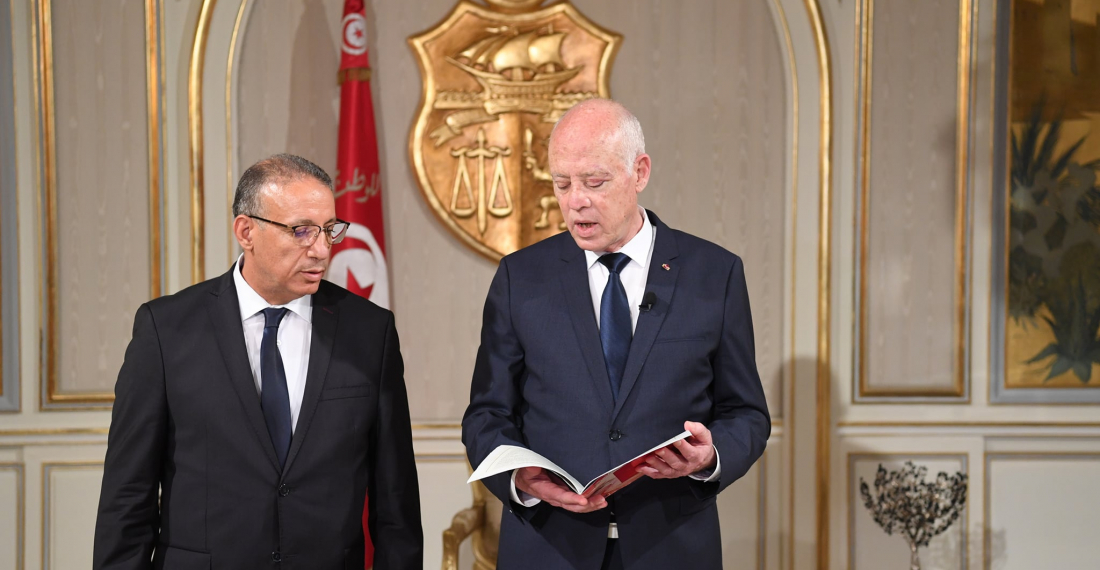Tunisian president Kais Saïed on Thursday (29 July) asked Ridha Gharsallaoui, a former national security adviser to the presidency, to temporarily take charge of the Interior Ministry until a new government can be formed. The information was published on the official website of the Tunisian presidency.
On Sunday (25 July), Saïed sacked the prime minister, Hichem Mechichi, and suspended the parliament's activities for 30 days. In the days that followed, the presidency dismissed several government officials, as well as the CEO of the national television channel Wataniya. Gharsallaoui's appointment represents the first appointment made by Saïed four days after he seized all executive power.
Gharsallaoui, who was sworn in by the president as required by article 89 of the constitution, is a police commissioner turned national security adviser to the president, according to local media.
His appointment comes after several countries and civil society organisations called on Saïed to appoint a new government without delay, as he had pledged to do. Tunisians and the world are still waiting for the appointment of a new prime minister, as well as a road map out of the crises Tunisia is facing.
Although the main party in parliament, Ennahda, has called the president's move "a coup against the revolution and the constitution", Saïed continues to claim his move on Sunday and subsequent actions were taken to counter an "imminent threat".
"I tell you and the whole world that I am keen to implement the constitutional text and keen more than them on rights and freedoms," Saïed said. "No one has been arrested. No one has been deprived of his rights, but the law is fully applied," he added.





